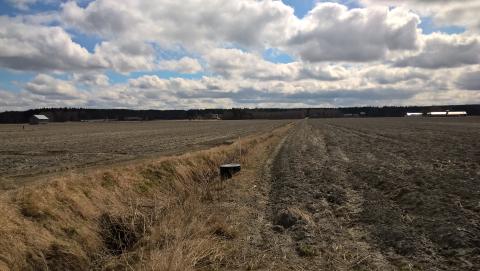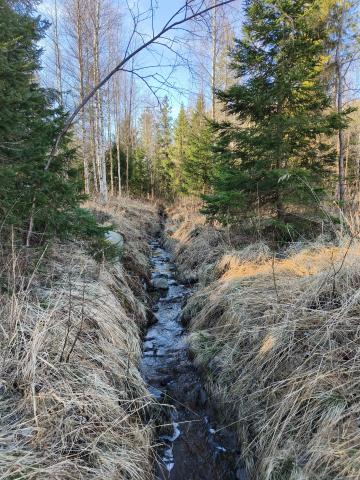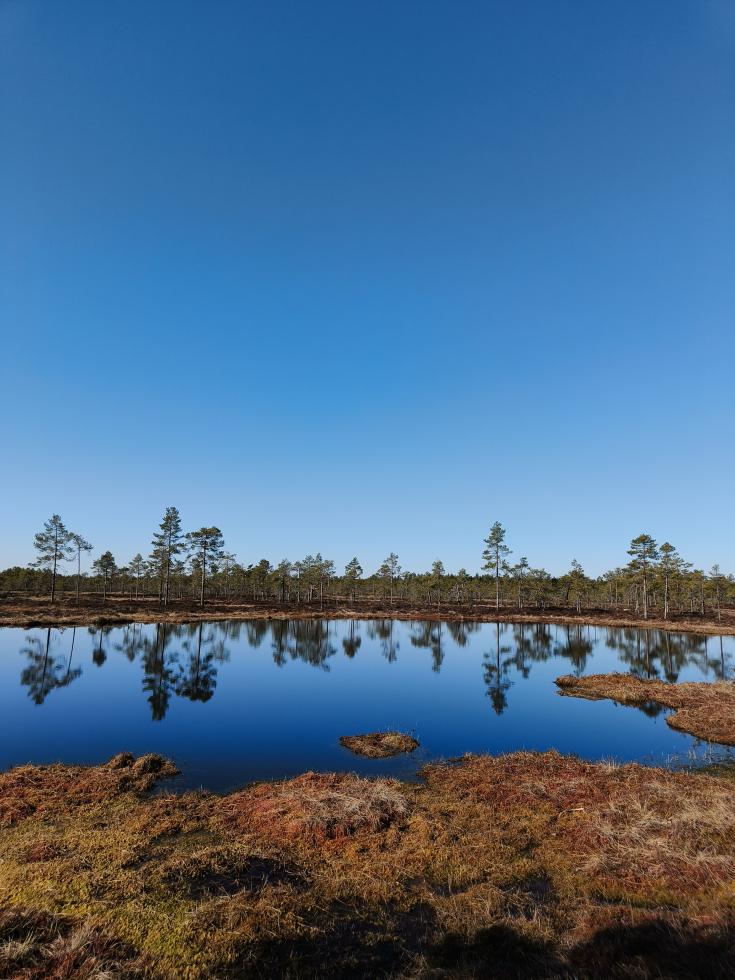Coming soon: RIWET's EEW4 in Finland
From 10–13 June 2025, the RIWET partners will meet again to participate in the 4th Exchange of Experience Workshop (EEW4) in Vaasa, Ostrobothnia, Finland. Hosted by our Finnish partners at the ELY Centre for South Ostrobothnia, the workshop promises a dynamic and insightful programme with two days packed full of innovative water management and restoration strategies across various catchment areas.
Programme highlights
Participants will explore a range of site visits and thematic sessions, covering:
- Restoration of peatland forests and post-extraction peatlands
- Water management in acid sulphate soils
- Catchment-based water management planning
- Regional cooperation through the river delegation model
- Strategies for balancing forestry, biodiversity, and climate goals
Water Management in Western Finland
The ELY Centre for South Ostrobothnia is the regional environmental authority responsible for managing the Kokemäenjoki–Archipelago Sea–Bothnian Sea river basin district. It monitors both surface and groundwater quality, assesses ecological water status, and develops programmes of measures under the EU Water Framework Directive. The current river basin management plan (RBMP) covers the period 2022–2027 and focuses on sustainable and collaborative water governance. During the RIWET visit a number of good practices will be visited.
Peatland forests - drainage & restoration
Finland’s landscape is dominated by peatlands, which cover about one-third of the country’s land area — more than anywhere else in the world. Over half of these areas were drained during the 20th century to boost forestry, often with mixed results. While productivity improved, the long-term environmental costs became apparent: increased greenhouse gas emissions, nutrient leaching, and the brownification of water bodies due to iron and organic matter runoff.
In response, Finnish authorities are now promoting sustainable peatland forest management, including:
- Continuous cover forestry (avoiding clear-cutting)
- Ash fertilisation to support forest health
- Water retention techniques such as pipe dams, sedimentation basins, and constructed wetlands
At the same time, many peatlands are being fully restored to near-natural conditions. Restoration measures include blocking drainage ditches, removing trees to raise the water table, and reintroducing native peatland vegetation. These actions help reduce nutrient runoff, restore biodiversity, and enhance carbon sequestration. Projects are often developed in cooperation with landowners and supported through national programmes like METSO, HELMI, and Metka.

Tackling acid sulphate soils
A key challenge in western Finland is the presence of acid sulphate soils—sediments rich in sulphur and metals that date back to the Litorina Sea era, around 8,000 years ago. These soils, now found along Finland’s low-lying coasts and farmlands, pose serious risks when drained for agriculture. Once exposed to oxygen, they release sulphuric acid and heavy metals, causing highly acidic and toxic runoff into rivers and coastal waters.
Despite their fertility, these soils are the main source of acid and metal pollution in many Finnish waterways, making it difficult to meet EU water quality targets by 2027. Climate change is expected to worsen the situation by intensifying runoff and soil oxidation.
Collaborative river delegations
To improve the implementation of RBMPs, the ELY Centre is promoting a "river delegation" model — a collaborative platform bringing together local stakeholders, municipalities, and private actors. These delegations aim to:
- Coordinate water-related measures at catchment scale
- Integrate RBMP actions into municipal and private land-use planning
- Promote shared responsibility and public-private partnerships
The delegations serve as a practical tool to reconcile economic, residential, and environmental interests. Their goal is to increase water retention, reduce pollution, and enhance resilience by fostering joint ownership of water management strategies.

More later!
The RIWET EEW4 in Finland will offer valuable insights into how one of Europe’s most water-rich nations is responding to complex environmental challenges with local innovation and broad cooperation. Stay tuned to the RIWET website and follow our LinkedIn page for more updates, detailed agenda, and registration information. And of course we'll tell a lot more after the event.
Access the full EEW4 programme here

